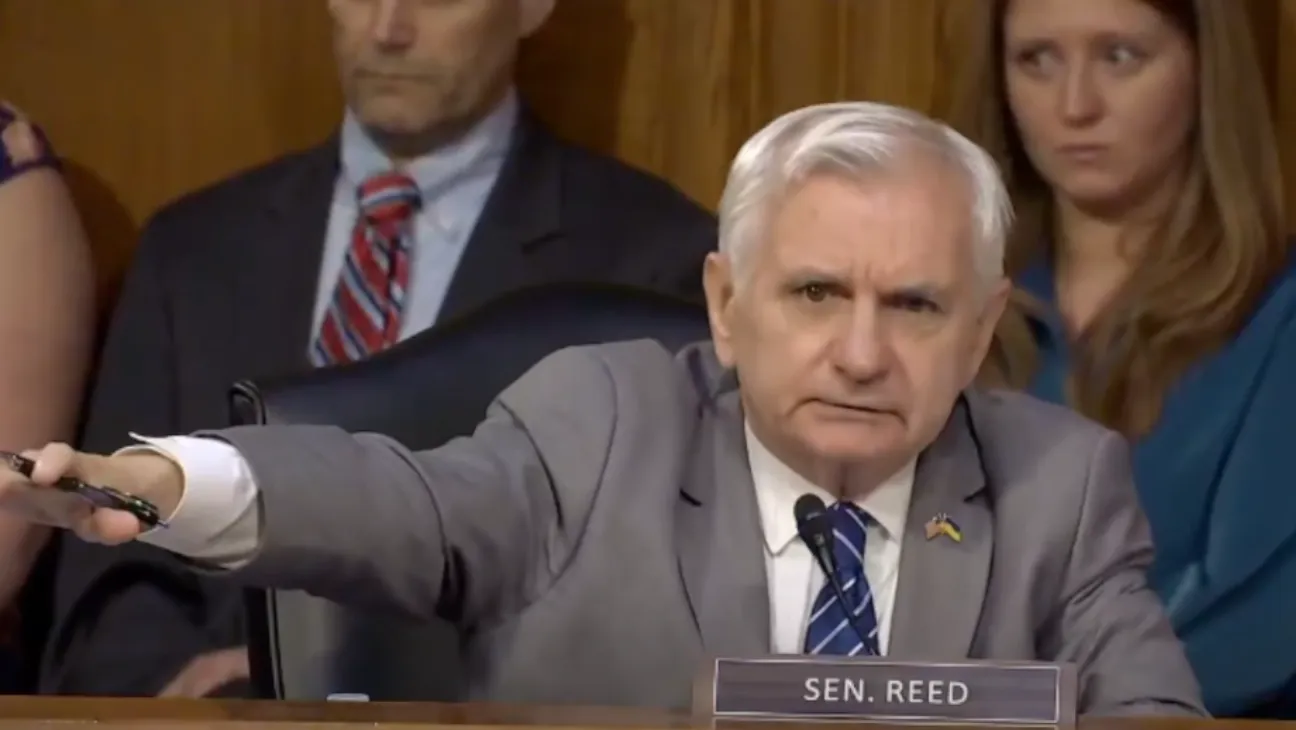Senator Jack Reed (D-RI) questioned Office of Management and Budget (OMB) Director Russell Vought during a Senate Appropriations Committee hearing, raising concerns about the administration’s proposed budget cuts and its internal staffing plans.
The hearing took place as lawmakers reviewed President Trump’s rescission request. Senator Reed pushed back on the proposal to cut $163 billion from the non-defense discretionary budget in fiscal year 2026, calling it a 20% reduction and the lowest proposed level since 2017.
“How many federal workers will be eliminated because of those cuts?” Reed asked.
Vought did not offer a clear number, saying the administration was still evaluating the scope. Reed noted public estimates suggest over 100,000 jobs could be affected across non-defense agencies.
Despite the broad reductions, the OMB is seeking a budget increase. The agency has requested $120 million this year, along with plans to add 20 full-time employees. Reed criticized the move, calling it a contradiction.
“You’re here telling us to cut all these programs, while increasing your own budget and staff,” he said.
Vought defended the request, arguing that the agency needs more examiners to oversee critical departments, including defense, foreign aid, intelligence, and veterans affairs.
Senator Reed also raised concerns about food aid programs. He mentioned a company in Rhode Island that produces therapeutic food for malnourished children and has faced supply delays due to inconsistent funding. “That’s not something to take pride in,” he told Vought.
Reed went further, accusing Vought of using ideology to shape budget decisions, rather than data.
“You haven’t presented a cost-benefit analysis,” he said. “This is not about efficiency. It’s about imposing personal preferences on federal programs.”
The conversation later turned to the Consumer Financial Protection Bureau (CFPB), which Vought oversees in part. Reed challenged recent reductions in the bureau’s service members affairs division. He said it’s the only agency office solely focused on protecting the finances of military personnel.
“You’re taking away the people who are supposed to fight for them,” Reed said.
Vought denied that, stating military lending was a priority under current enforcement guidance. He added that the bureau is under judicial receivership and cannot make staffing changes without court approval.
“The CFPB hasn’t truly protected consumers,” Vought argued, claiming that “some examiners have used their role to unfairly target Americans.”
What this hearing really showed was the canyon-sized gap between how Democrats and the Trump administration think federal agencies should run. Vought defended his administration’s hardline stance. But Reed made it clear that from his perspective, any changes have to be a joint effort between parties, with the public always having a seat at the table.
“This isn’t just about numbers,” Reed said. “It’s about responsibility.”









